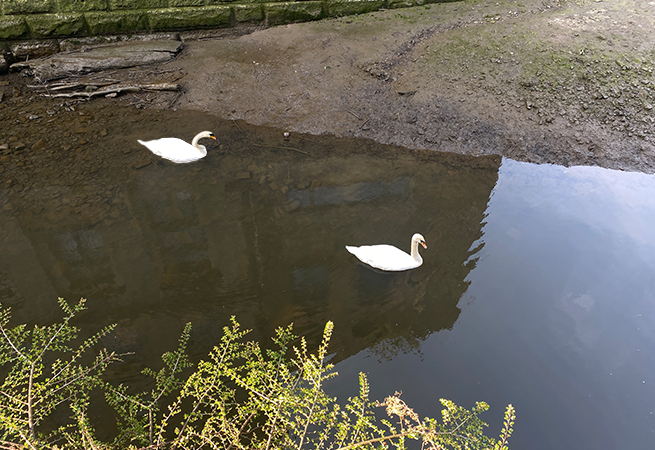For over 400 years, the Ouseburn River has carried the weight of Newcastle’s industries, becoming a dumping ground for waste to fester and infect the local waterways. As early as 1615, coal-fired glassmaking along its banks poured ash and waste debris into the water. By the early 1900s, flour mills used for pig feed flushed untreated human waste downstream, even as locals bathed and washed in its flow. Now, in 2025, the river is still grappling with pollution, but this time from raw sewage being dumped into the river from water companies’ lack of accountability and outdated infrastructure struggling to cope with demands.
After centuries of misuse and neglect, what are the effects of water pollution in the Ouseburn River, and what are the wider implications?
Why is water pollution such a pressing issue in the North East?
1. Rising bills
Water bills in the North East have risen by an average of £79 per year, marking the largest increase in water bills since the privatisation of the water industry 36 years ago. Despite these higher costs, Northumbrian Water has claimed its prices remain “among the lowest” in the UK, with customers paying £1.39 per day for their water and sewerage services.
The Consumer Council for Water (CCW) said stronger support was immediately needed to protect struggling households. However, David Werner, Newcastle University Professor and Environmental Researcher, explained, “A solution to this is something that is called social tariffs. This is for people who cannot afford to pay their bills, where they can get in touch with Northumbrian Water and negotiate a better price.”
He added, “I think it’s important that we feel responsible for it. We are generating this waste on a daily basis, we should be willing to pay for it to be cleaned.”
However, public disappointment remains. as Tianha Fox, a team member at Di Meo’s along the river, said, “It’s frustrating because we haven’t seen any real change in the area yet, but if they do improve the water quality, I would be happy to pay more towards it.”
2. Wildlife
There are many different kinds of wildlife in the Ouseburn River, such as swans, ducklings, and otters. However, these animals and the habitat around them are severely endangered by the continuous pollution.The Rivers Trust found that since 1970, freshwater species have seen an 83% decline globally.
Algal blooms in the river cause nutrient pollution through a process called eutrophication, which occurs from a surplus of nitrogen and phosphorus in sewage, lowering oxygen levels and producing hypoxic conditions, suffocating aquatic life. This harms species that depend on a healthy environment for survival by disrupting the food chain.
3. Local communities
The pollution of the Ouseburn River is not just an environmental concern, it is a crisis for public health. Untreated sewage contains harmful pathogens (such as bacteria, viruses, and parasites), toxic chemicals (including heavy metals and pharmaceuticals), and organic matter, all of which can lead to serious health risks like gastrointestinal illnesses, infections, and long-term diseases if humans are exposed to contaminated water.
Since 2010, hospital admissions for waterborne diseases have increased by 60% in England, according to the Labour Party’s analysis of NHS statistics.
The Ouseburn is a popular green space located a short walk from the City Centre, where locals attend family days out, fishing and dog walking. However, the awareness of the state of the water has raised concerns around safety, especially considering children are highly vulnerable to illnesses spread through polluted water.
Addressing the pollution challenge before it results in even higher health expenses and avoidable diseases in the community is even more crucial, given the rising number of sewage discharges year by year.
Is this a localised problem or a national emergency?

As demonstrated in the chart above, Newcastle-Upon-Tyne only accounts for a small fraction of sewage spills nationally. Hundreds of thousands of spills happen every year around the UK, which is indicative of a pervasive problem with poor infrastructure, agricultural runoff, and industrial pollution affecting streams well beyond Newcastle’s boundaries.
Furthermore, communities throughout the UK are now dealing with the fallout from water firms prioritising profits over the environment due to decades of underinvestment, loose regulation, and weak enforcement.
What are the solutions?
Water companies such as Northumbrian Water have started investment programmes to replace the outdated infrastructure and do their part in cleaning the state of the water.
But what can you do?
David Werner suggests, “Don’t flush things down the toilet such as wet wipes, that can cause blockages and reduce the capacity of the network. This leads to more spills and plastics released into the environment.”
He also suggests that if you are a homeowner, you should install rainbuts or permeable pavements on your driveway to help reduce the amount of rain that gets into the drainage network.

